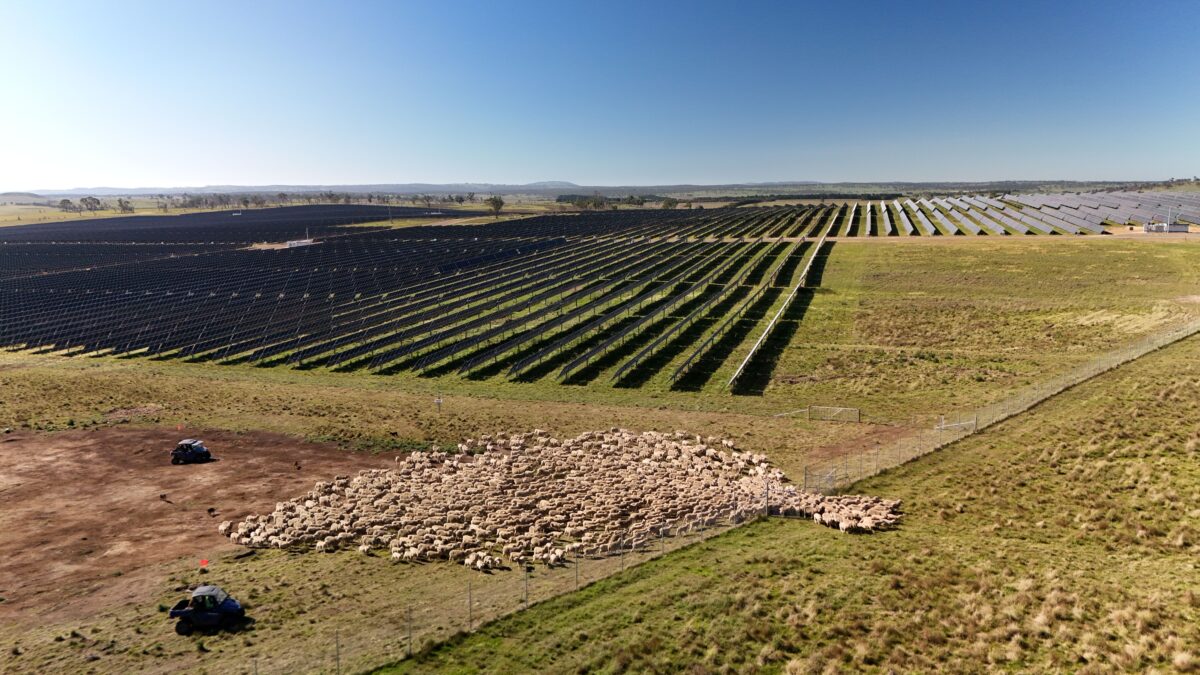ACEN said its subsidiary ACEN Renewables International has signed an $75 million (USD 49.22 million) green term loan facility with the Hong Kong and Shanghai Banking Corp (HSBC) to boost its rollout of renewable energy projects in Australia, the company’s largest market outside the Philippines.
The company said the loan will deliver the “much-needed capital” for ACEN’s renewable energy projects in a market that it said is a critical player in its ambitious goal to expand its renewable energy capacity in Australia and the broader Asia-Pacific region to 20 GW by 2030.
“The loan agreement underlines ACEN’s strategic move to bolster its renewable energy initiatives in Australia, an emerging key market for the company,” the firm said.
ACEN Treasurer Cecile Cruzabra said the loan will not only underpin the firm’s capacity in the market but will also enable it to “manage our foreign currency risk.”
“This AUD green term loan of ACRI is a significant stepping stone in our funding journey, supporting our expansion plans in Australia, as well as helping manage our foreign currency risk in AUD,” she said.
The new funding agreement comes after the Philippines-based company announced in September it will invest $6 billion in the Australian market over the next three years as part of its ambition to bring a further 3 GW of new renewable capacity online.
ACEN currently has 1 GW of renewable energy projects in construction and operation in Australia and an additional 8 GW of capacity across solar, wind, battery and pumped hydro projects in its development pipeline.
Included in its projects is the New England Solar Farm which will be the biggest operating solar plant in Australia when its full capacity of 720 MW across two stages is complete.
Construction of the 400 MW first stage of the project has already been completed with ACEN confirming that production from the first stage reached its full capacity earlier this week.
ACEN Australia Managing Director David Pollington said the New England project, being developed near Uralla in northern New South Wales (NSW), is now generating clean renewable energy into the National Electricity Market (NEM).
“The project will provide enough clean renewable energy to power around 300,000 homes, but it’s also providing a really productive space where sheep can graze, protected from the harsh elements, particularly during hot conditions,” he said.
Pollington said more than 2,000 merino sheep are already grazing around the one million solar panels installed across the 1,200-hectares stage 1 project site, with up to 6,000 sheep expected to be grazing amongst the solar panels early in 2024.
Work has already started on stage 2 of the New England project which includes a 320 MW solar development and a 200 MW, two-hour battery energy storage system.
Other projects in ACEN’s Australian portfolio include the 400 MW Stubbo Solar Farm being developed in NSW’s central west, and the proposed 800 MW, 12-hour Phoenix pumped hydro project being developed near Wellington within the Central West Orana REZ.
In addition to the $6 billion investment in Australia, ACEN plans to invest $10 billion in renewable energy projects in other parts of the world. The company aims to reach 50 GW of renewable energy capacity by 2030.
This content is protected by copyright and may not be reused. If you want to cooperate with us and would like to reuse some of our content, please contact: editors@pv-magazine.com.









By submitting this form you agree to pv magazine using your data for the purposes of publishing your comment.
Your personal data will only be disclosed or otherwise transmitted to third parties for the purposes of spam filtering or if this is necessary for technical maintenance of the website. Any other transfer to third parties will not take place unless this is justified on the basis of applicable data protection regulations or if pv magazine is legally obliged to do so.
You may revoke this consent at any time with effect for the future, in which case your personal data will be deleted immediately. Otherwise, your data will be deleted if pv magazine has processed your request or the purpose of data storage is fulfilled.
Further information on data privacy can be found in our Data Protection Policy.